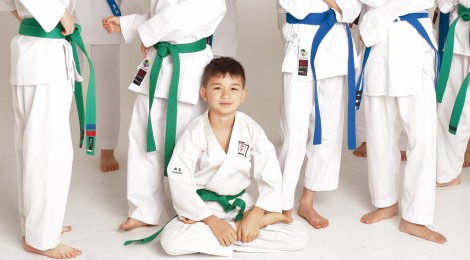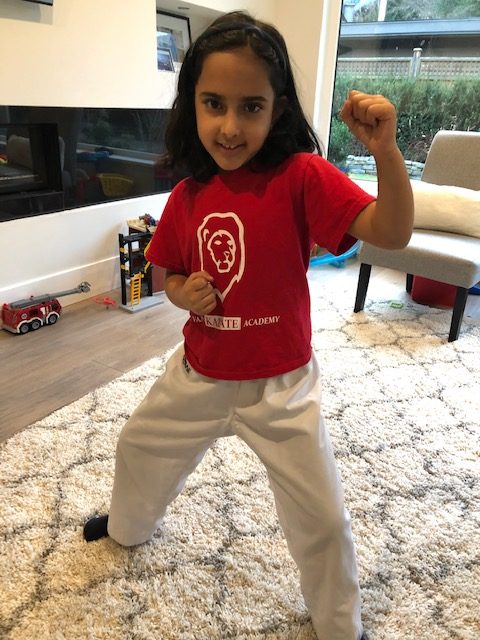
Benefits of Karate for Children
Karate is one of those rare sports that is truly well-rounded. To be a successful karate athlete, one must learn to be physically strong, agile and swift, flexible, and make intelligent decisions quickly and decisively. However, those attributes mentioned above are just the physical components of a successful karate athlete; when looking at all dimensions of a karate athlete (physical, mental, emotional, spiritual) we can see that there is much more being gained than simple fitness.
Below are 10 benefits that karate has for children aside from physical fitness.
- Fostering Self-Discipline – One of the central tenets of all forms of the martial arts is an absolute focus on self-discipline. Today’s kids are so accustomed to receiving instant gratification that lessons in self-restraint and discipline aren’t always easy to come by. Kids with a martial arts background, however, are continually reminded of how essential self-discipline is.
- Boosting Socialization Skills – Kids who don’t always thrive in highly social environments may find it easier to get to know people and make new friends when they’re in a room filled with peers who share a common interest. The kids on the playground may not always have much common ground, but devotees to the martial arts are able to get to know one another through shared a shared common interest.
- Encouraging Physical Activity – Limiting screen time is a great idea when it comes to getting kids off the couch and encouraging them to be more active, but it only goes so far. Enrolling an inactive child in such a physically demanding pastime not only discourages the sedentary lifestyle they’re used to, but also gives them an enjoyable activity that inspires them to keep moving.
- Learning to Set and Achieve Goals – Most forms of martial arts are based around reward system of colored belts that signify the wearer’s degree of skill. When your child strives toward each new belt, they’re learning valuable lessons about setting and reaching goals.
- Increased Self-Esteem – Confidence comes with achievement, so your child’s self-esteem level will get a boost with every new move they masters and every belt they earn. Kids who struggle with a low sense of self-worth usually become more confident as time progresses while they’re enrolled in a martial arts class.
- Instilling a Sense of Respect – Learning any martial arts style will require your child to quickly develop a respectful attitude. Whether it’s showing respect to the instructors, classmates, or the training facilities, respect is something that every martial arts practitioner should possess and demonstrate on a regular basis.
- Encouraging Non-Violent Conflict Resolution – Thinking that martial arts instruction promotes violent behavior is justified if your only experience with the activity comes from television or movies. In fact, many defensive styles teach kids peaceful, non-violent conflict resolution skills and emphasize the importance of avoiding a physical altercation.
- Improving Listening Skills – In order to master the skills she’s being taught and advance through the belt ranks, your child will have to exercise superior listening skills. Kids who aren’t always adept when it comes to paying attention to what they’re told can benefit from the verbal instruction and one-on-one work in her dojo.
- Developing Teamwork Skills – Whether they’re performing a team demonstration to get a new belt or sparring in a practice setting to master a new technique, there are few things that your child does in their martial arts classes that will be done on their own. Working together to learn new things and accomplish goals is an important life lesson for kids to learn, and instruction in the martial arts can help your child learn that lesson.
- Improvement in Other Areas of Life – The benefits of martial arts training don’t end in the dojo. The boost in confidence, increased fitness and focus levels, and new cooperation skills will also help your child navigate the academic and social aspects of school, affect his behavior at home and have an all-around good influence on him as he develops into an adult.

